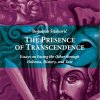He studied singing in the Music School Mokranjac with prof. Tanja Obrenović and later at the Faculty of Music, University of Arts in Belgrade with prof. Nikola Mijailović. In Mozart’s Magic flute he made his debut as Sarastro at the opera stage of Madlenianum Opera & Theatre in Belgrade. He received scholarships from the International Vocal Arts Institute (IVAI) in 2013 when he sang Bartolo in an IVAI production of Le nozze di Figaro and in July 2014 when he sang Osmin in their production of Die Entführung aus dem Serial in Tel Aviv, Israel. In June 2014 he made his Carnegie Hall debut as Sir Walter Raleigh in Donizetti’s opera Roberto Devereux with The Opera Orchestra of New York led by Mo. Queler. In 2012 he performed at the Esterhazy festival in Haydnsaal, Austria.
During his education he was awarded with several prizes: 1st Prize Award at the Gerda Lissner International Vocal Competition, New York, 2014; Danica Mastilović’s Award for the best student of solo-singing department at the University of Arts in Belgrade, 2014; Publikumspreis der Stadt Beeskow in the frame of the international Opera Course Oper Oder-Spree, Germany, 2011; 1st Prize at the sixth Solo Singers Competition Lazar Jovanović, Serbia, 2008.
Beside music he holds a Master degree in Pharmacy from the Faculty of Pharmacy, University of Belgrade.





